Published Oct 6, 2023
Ferengi, Farangi, and Fearing the 'Other'
How one fan's relationship with Star Trek was forever altered upon learning the double meaning of 'ferengi.'
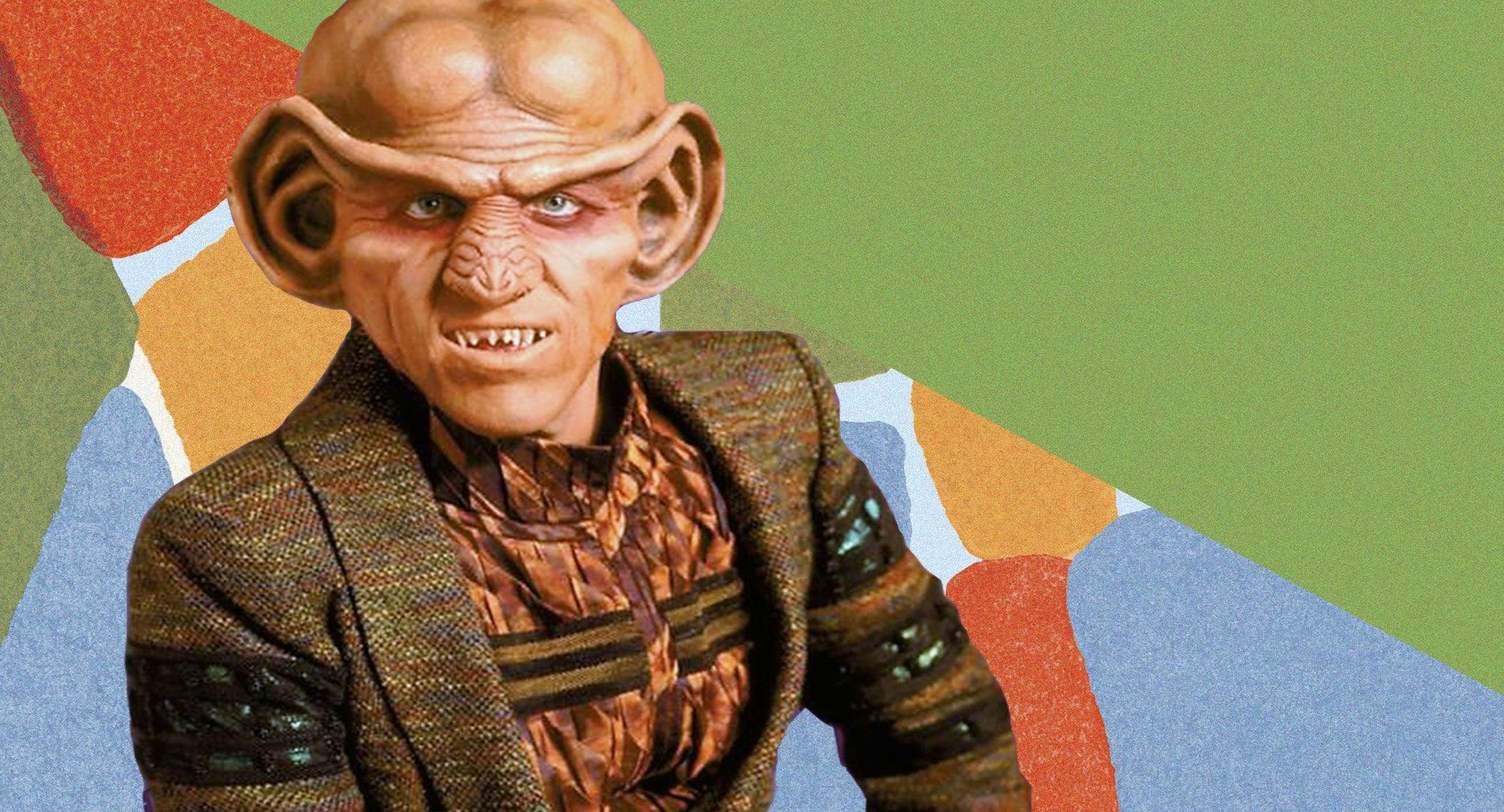
StarTrek.com
It’s dark on the bridge of the U.S.S. Enterprise. A red alert echos, and someone is trying to force their way in. It feels like I’m being chased, unable to find a means of escape. The door is broken through, revealing throngs of Ferengi and Klingons on the other side.
And then, I am awake.
It’s one of the earliest nightmares I can recall; I wasn’t even five years old yet and some of Star Trek’s frequent flyers were already infiltrating my sleep. As an adult, I began to wonder why my early nightmares revolved around Star Trek; I’ve always been a nerd, and I couldn’t figure out why something I love would cause me that level of distress. It’s understandable that some of the show’s species would frighten children, especially the ridge-faced, wild-looking Klingons, and the Ferengi with their oddly placed, sharpened teeth. But I’d never thought that I could have very easily been associating those alien races with monsters.
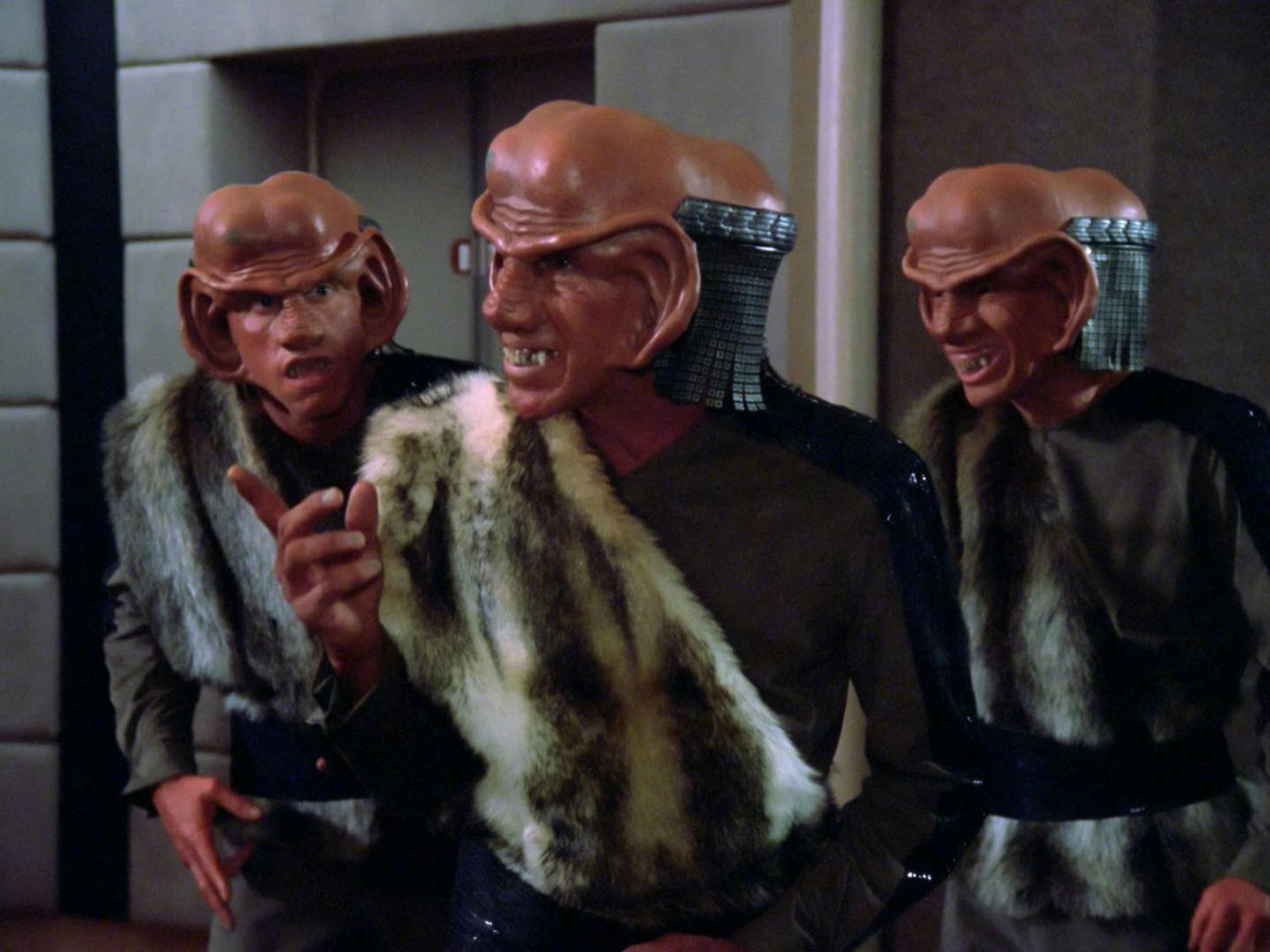
"The Battle"
StarTrek.com
Recently, I brought up this nightmare to my father and mentioned the Ferengi.
“Did you know," my father commented, "that farangi in Persian means 'foreigner’?”
In America, everyday civilians who appear as foreign tend to bear the brunt of our "Fear of the Other," xenophobia encouraged by the terrible rhetoric politicians spew, spreading ignorance like a cold on the subway.
While it’s an obvious fault of our society, it’s also one I know from personal experience. I’m a first generation American on my father’s Iranian side of the family; my Irish and Italian-American mother was born and raised in New Hampshire. My parents had friends and extended family who were Indian, Russian, Argentinian, Polish, Jewish, African American, and I was raised to be accepting and open to others, even when I encountered strangers who were ignorant and rude to us. Iran was still associated with hostages, Iran-Contra, and everything else horrible on the world stage (not that this has changed, sadly). In one spectacular miscommunication during the early '90s, a waitress thought my father was Russian and nobody corrected her. Though the Cold War was only just warming, it was still much less problematic to be thought of as Russian than Iranian.
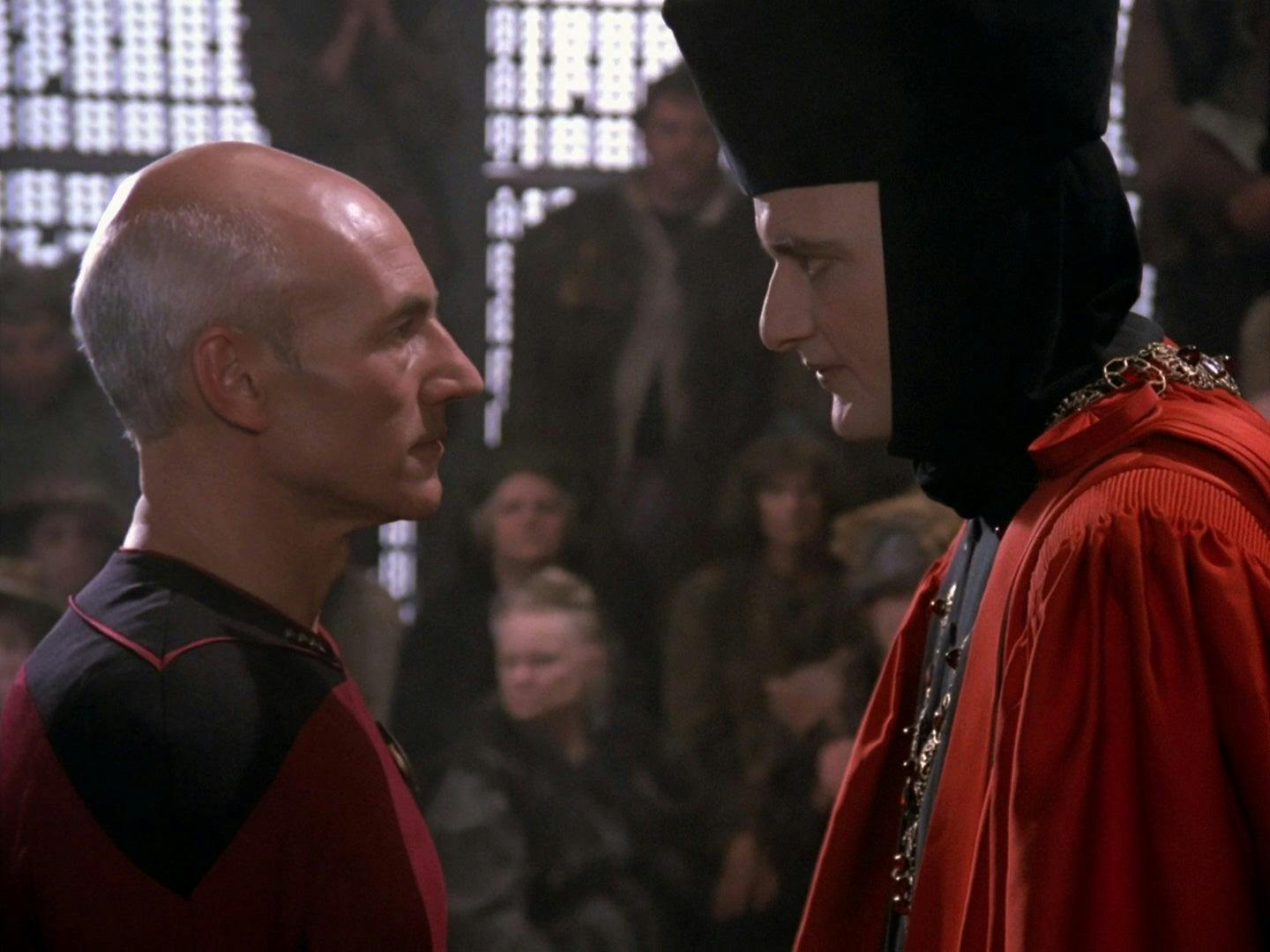
"Encounter at Farpoint"
StarTrek.com
These days, it’s safe to say that I am more afraid of prejudice and narrow-mindedness than I am of actors in prosthetics. Still, I can’t help but to wonder more about the decision to name an alien species after an Eastern term for foreigner, when the species are often seen as symbolism for Western capitalism and greed. That right there, you might say, is a Fear of the Other — or, to a Westerner, a Fear of Ourselves! And that is Star Trek at its best, holding up a mirror to ourselves. The Federation navigates this Fear of the Other concept admirably, with the franchise overall being arguably one of the greatest explorations of equality and xenophobia in the genre.
Racial tropes are nothing new to science fiction (take HP Lovecraft, or the early Edgar Rice Burroughs works), and it’s easy for creators to use the themes of science fiction to reinforce xenophobia and justify their own fears and prejudices. But, sci-fi has also long been a landscape where storytellers confront these conflicts and turn them on their heads. Think, for example, of Invasion of the Body Snatchers, X-Men, and, of course, Star Trek. The stories of the Federation serve as a way to bring us face to face with our own culture’s prejudices. It forces us to confront xenophobia within America’s own melting pot.
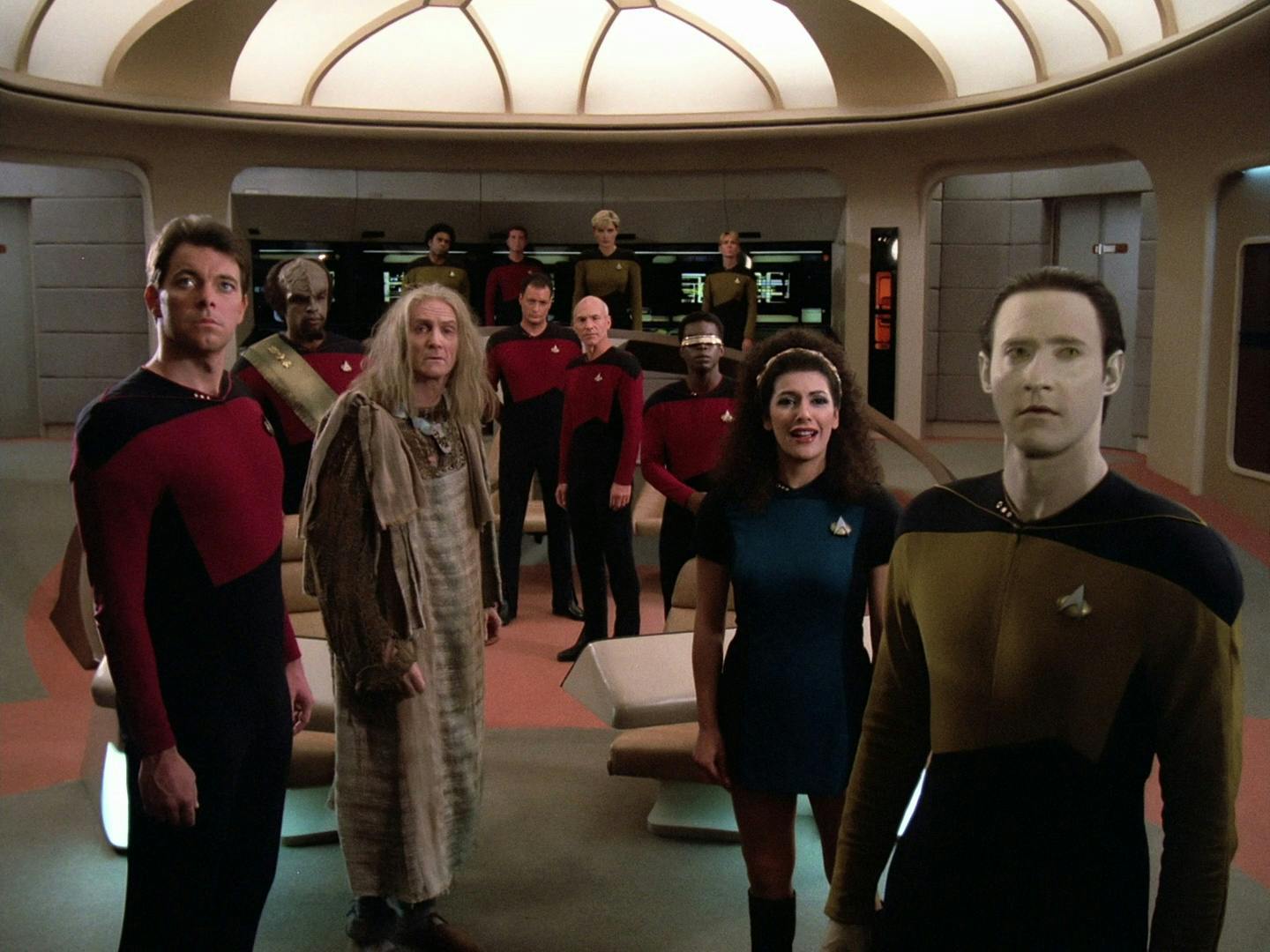
"Encounter at Farpoint"
StarTrek.com
You can't deny that you're still a dangerous, savage child race [...] you slaughtered millions in silly arguments about how to divide the resources of your little world. And 400 years before that, you were murdering each other in quarrels over tribal god-images. Since then, there are no indications that humans will ever change.
Q, "Encounter at Farpoint"
Q reminds us of humanity’s downfall right at the outset of , in a statement that even the Federation has trouble rebuking time and time again. As history has shown us here on Earth, economic and political turmoil can leave a society feeling angry, afraid, and full of despair — feelings that would-be dictators wield to convert fear and anger into racism and bigotry. It can be argued that the Federation portrays a Utopian future propelled by humanity’s need to turn around from near self-destruction. In our own universe, this doesn’t always feel as fictional and out of reach as we might like, since Fear of Farangi has been used as a means to start wars, tarnish foreign relations, stoke conflict, and even justify genocide.

"Errand of Mercy"
StarTrek.com
Star Trek has often used America’s real life foreign interactions to inform its own plots, asking audiences to reflect on conflicts close to home, while challenging them to look outside of an American lens. Throughout , we see blatant parallels to the Cold War with Kirk and his crew often warring against opponents unseen. They fear what The Other — the Klingon race, in their case — is capable of.
Kirk resents Klingons, declaring them all savages when his son is killed by one. But, 200 years in the future, we find ourselves watching Worf on The Next Generation, Starfleet’s first Klingon officer. If Klingons were first meant to portray the West’s troubles with the Soviet Union, Worf working his way to being an officer, of security no less, is shown as a recognized path towards building trust between cultures at odds.
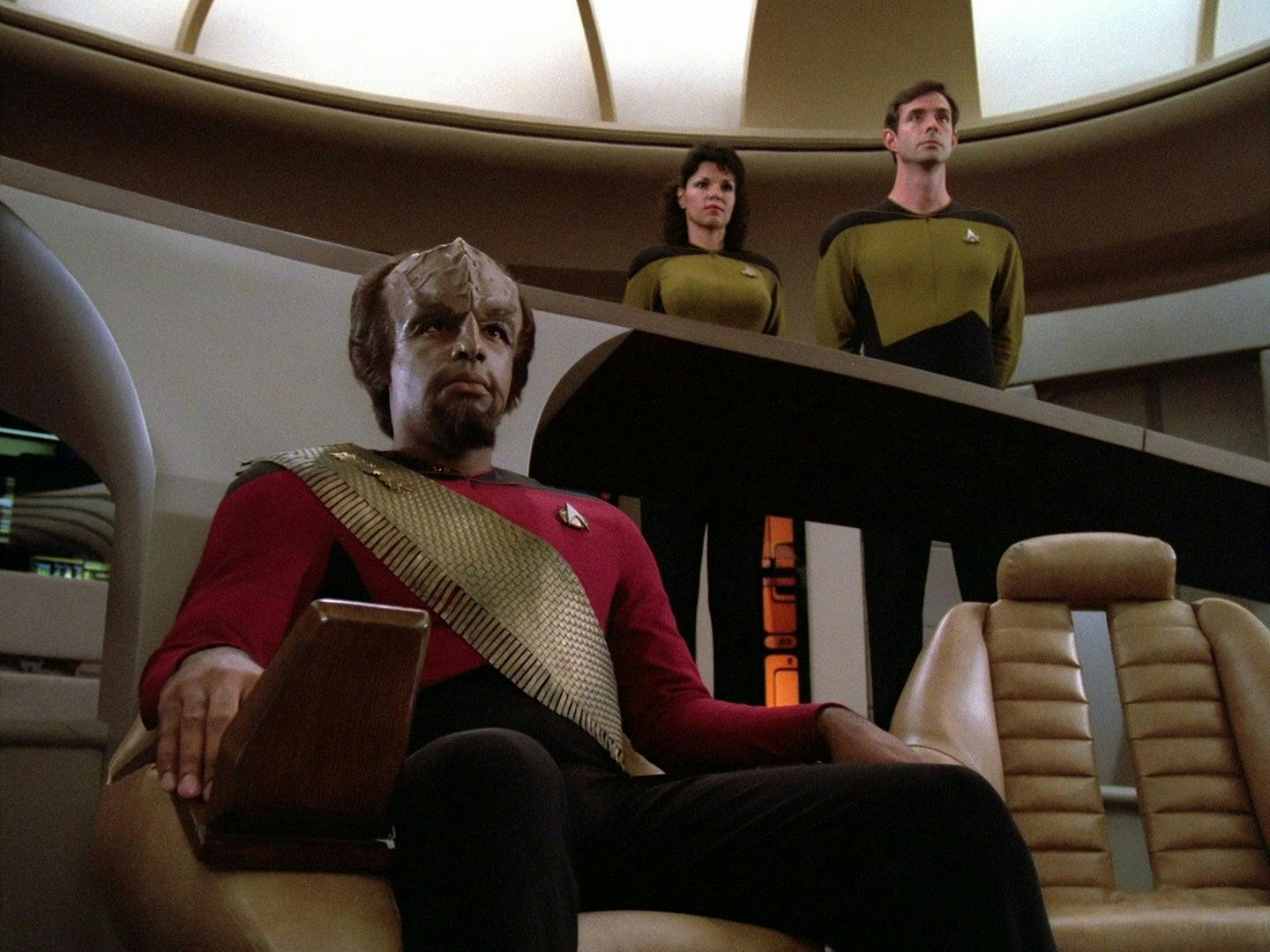
"Encounter at Farpoint"
StarTrek.com
American society often questions the loyalty of those who look different, have different names, or speak differently — President Obama may not have been asked to produce a birth certificate if this were not still the case. Thus, the messages in these episodes hold a continuing relevance the one could craft an entire thesis around on Star Trek and xenophobia (I know you are out there, thesis writer, and I’m proud of you). The diverse bridge of the Original Series' Enterprise shows what Gene Roddenberry wanted America to eventually be — after all, boldly going where no man has gone before almost ensures that you’re going to come in contact with the unknown!
Sometimes we might need to look at storylines set on the U.S.S. Enterprise in order to see the conflict and hypocrisy on our own soil. It’s human nature to fear the unknown, but if Star Trek has shown us anything, it’s that society and progress would be better served by addressing our Fear of Farangi with reason and intelligence, not isolationism and bigotry.





